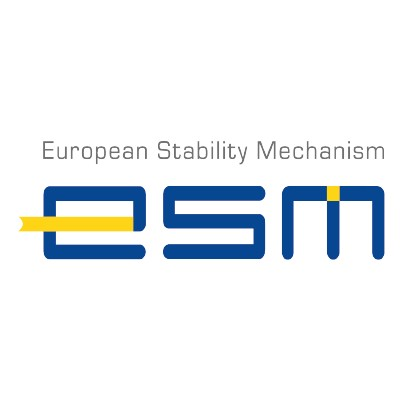EU Investigates Corning: A Glassy Monopoly?
November 9, 2024, 1:17 am

Location: United States, New York, City of Corning
Employees: 10001+
Founded date: 1851
Total raised: $104M

Location: Belgium, Brussels-Capital, Brussels
Employees: 1001-5000
Founded date: 1958
The European Union has cast a spotlight on Corning, the American giant behind Gorilla Glass. This investigation raises questions about market manipulation and competition. Corning's glass is a staple in smartphones, used by major players like Apple and Samsung. But is its dominance stifling innovation and consumer choice?
Corning has been a key supplier for Apple since the launch of the first iPhone in 2007. Its glass protects millions of screens worldwide. However, the EU is now scrutinizing the company's practices. The concern? Exclusive supply agreements that may limit competition.
The EU's antitrust division is digging deep. They suspect Corning may be engaging in anti-competitive behavior. This includes forcing smartphone manufacturers to buy glass exclusively from them. Such practices could eliminate rival suppliers, leading to higher prices and fewer choices for consumers.
The investigation is not just about Corning's relationship with Apple. It also involves other smartphone manufacturers. The EU wants to understand the full impact of Corning's agreements. Are they squeezing out competitors? Are they creating a glass monopoly?
Corning's Gorilla Glass is ubiquitous. It’s the go-to choice for many smartphone makers. This dominance raises eyebrows. With little competition, the potential for price hikes looms large. The EU fears that consumers could end up paying more for less innovation.
Margrethe Vestager, the EU's antitrust chief, has voiced concerns. She emphasizes the need for a fair market. The investigation aims to ensure that consumers have access to affordable and innovative products. If Corning is found guilty, the consequences could be severe. The company could face fines up to 10% of its global revenue.
The stakes are high. Corning's glass is not just a product; it's a cornerstone of modern technology. If the EU uncovers wrongdoing, it could reshape the smartphone industry. Other manufacturers might be forced to rethink their supply chains.
Corning's history with Apple is notable. The tech giant has invested heavily in Corning over the years. This partnership has been beneficial for both. But it also raises questions about fairness in the market. Are these investments creating an uneven playing field?
The EU's investigation is a reminder of the delicate balance in tech. Innovation thrives on competition. When one player dominates, the entire ecosystem suffers. Consumers deserve choices, not just the best glass, but also the best prices.
As the investigation unfolds, the tech world watches closely. The outcome could set a precedent. It might encourage other regions to examine their own markets. The EU is leading the charge, but it’s a global issue.
Corning's response will be crucial. The company must defend its practices. It needs to prove that its agreements are not stifling competition. Transparency will be key. The EU will scrutinize every detail.
The investigation highlights a broader trend. As technology evolves, so do the challenges. Companies must navigate complex regulations. They must balance innovation with fair competition.
For consumers, this is a pivotal moment. The outcome could influence future purchases. Will they have access to a variety of glass options? Or will they be stuck with one choice?
The EU's actions signal a shift. Regulators are becoming more vigilant. They are willing to challenge even the biggest players. This could lead to a more equitable market.
In the end, the investigation is about more than just glass. It’s about the future of technology. It’s about ensuring that innovation continues to flourish. The EU is taking a stand. It’s a battle for fairness in a glassy world.
As the dust settles, one thing is clear. The tech industry must adapt. It must embrace competition. Only then can it truly serve the needs of consumers. The EU's investigation is a wake-up call. It’s time for change.
In conclusion, the EU's investigation into Corning is a critical moment for the tech industry. It challenges the status quo. It demands accountability. The outcome will resonate far beyond the glass market. It could redefine how technology companies operate. The future is uncertain, but one thing is sure: the glass is half full, and it’s time to fill it with choices.
Corning has been a key supplier for Apple since the launch of the first iPhone in 2007. Its glass protects millions of screens worldwide. However, the EU is now scrutinizing the company's practices. The concern? Exclusive supply agreements that may limit competition.
The EU's antitrust division is digging deep. They suspect Corning may be engaging in anti-competitive behavior. This includes forcing smartphone manufacturers to buy glass exclusively from them. Such practices could eliminate rival suppliers, leading to higher prices and fewer choices for consumers.
The investigation is not just about Corning's relationship with Apple. It also involves other smartphone manufacturers. The EU wants to understand the full impact of Corning's agreements. Are they squeezing out competitors? Are they creating a glass monopoly?
Corning's Gorilla Glass is ubiquitous. It’s the go-to choice for many smartphone makers. This dominance raises eyebrows. With little competition, the potential for price hikes looms large. The EU fears that consumers could end up paying more for less innovation.
Margrethe Vestager, the EU's antitrust chief, has voiced concerns. She emphasizes the need for a fair market. The investigation aims to ensure that consumers have access to affordable and innovative products. If Corning is found guilty, the consequences could be severe. The company could face fines up to 10% of its global revenue.
The stakes are high. Corning's glass is not just a product; it's a cornerstone of modern technology. If the EU uncovers wrongdoing, it could reshape the smartphone industry. Other manufacturers might be forced to rethink their supply chains.
Corning's history with Apple is notable. The tech giant has invested heavily in Corning over the years. This partnership has been beneficial for both. But it also raises questions about fairness in the market. Are these investments creating an uneven playing field?
The EU's investigation is a reminder of the delicate balance in tech. Innovation thrives on competition. When one player dominates, the entire ecosystem suffers. Consumers deserve choices, not just the best glass, but also the best prices.
As the investigation unfolds, the tech world watches closely. The outcome could set a precedent. It might encourage other regions to examine their own markets. The EU is leading the charge, but it’s a global issue.
Corning's response will be crucial. The company must defend its practices. It needs to prove that its agreements are not stifling competition. Transparency will be key. The EU will scrutinize every detail.
The investigation highlights a broader trend. As technology evolves, so do the challenges. Companies must navigate complex regulations. They must balance innovation with fair competition.
For consumers, this is a pivotal moment. The outcome could influence future purchases. Will they have access to a variety of glass options? Or will they be stuck with one choice?
The EU's actions signal a shift. Regulators are becoming more vigilant. They are willing to challenge even the biggest players. This could lead to a more equitable market.
In the end, the investigation is about more than just glass. It’s about the future of technology. It’s about ensuring that innovation continues to flourish. The EU is taking a stand. It’s a battle for fairness in a glassy world.
As the dust settles, one thing is clear. The tech industry must adapt. It must embrace competition. Only then can it truly serve the needs of consumers. The EU's investigation is a wake-up call. It’s time for change.
In conclusion, the EU's investigation into Corning is a critical moment for the tech industry. It challenges the status quo. It demands accountability. The outcome will resonate far beyond the glass market. It could redefine how technology companies operate. The future is uncertain, but one thing is sure: the glass is half full, and it’s time to fill it with choices.